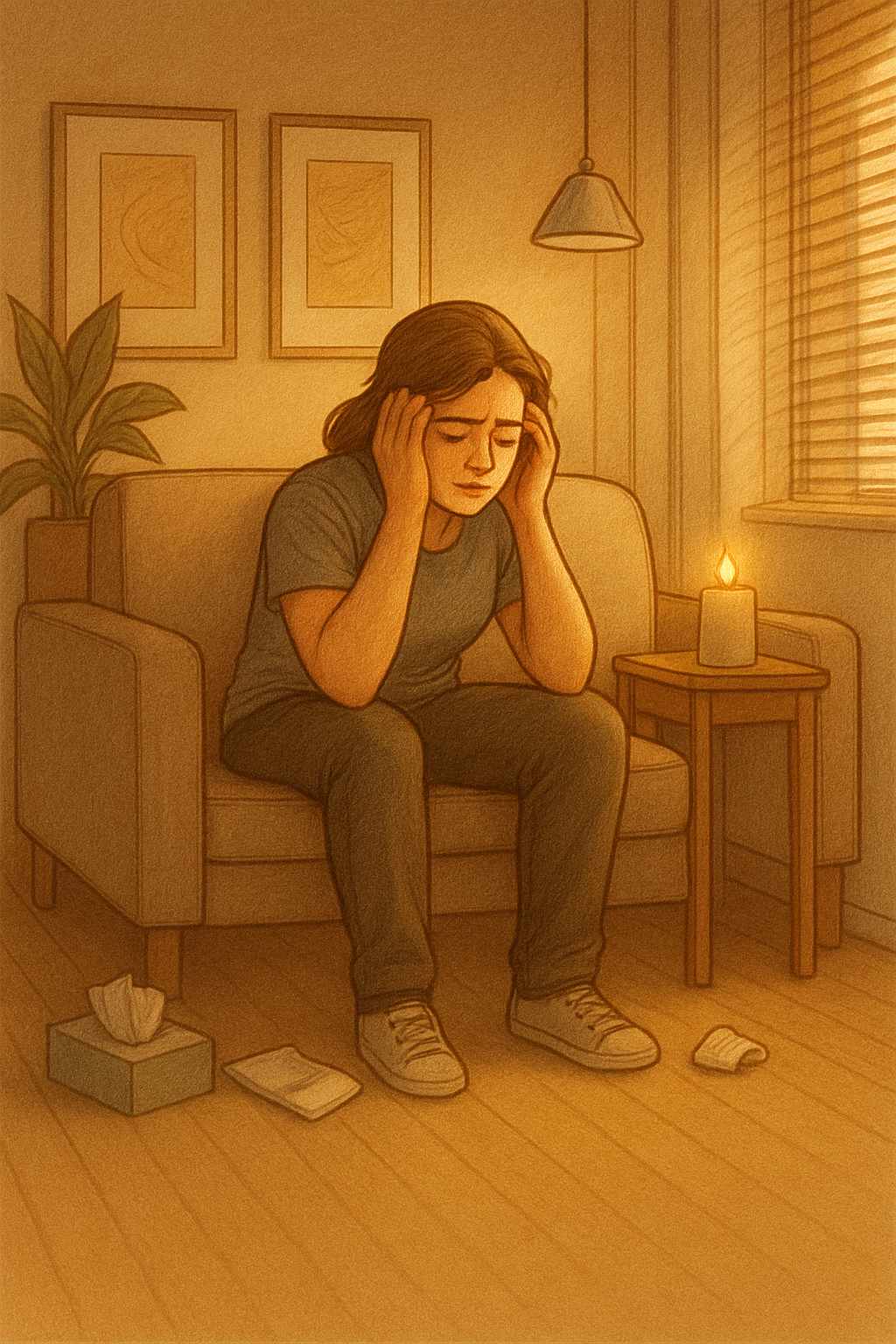
(Part 2 of The Quiet Emotions of Trauma Healing series)
Estimated reading time: 5–7 minutes
The Quiet Emotions of Healing
This post is part of our series “The Quiet Emotions of Healing,” where we explore the lesser-known emotional side effects of trauma recovery. Healing doesn’t only bring relief, peace, or strength. It can also stir up guilt, grief, fear, or loneliness. These emotions don’t mean you’re failing — they often mean you’re growing.
The Series
- Part 1: Grieving the Person You Could Have Been
Why healing often brings unexpected grief for lost time, missed opportunities, and versions of yourself that never had the chance to exist. - Part 2: The Guilt of Feeling Better: Why Joy Can Feel Unsafe After Trauma
How survivor’s guilt and shame can make joy feel undeserved — and how to begin releasing that weight.
When Guilt Shows Up in Trauma Healing
Healing from trauma is often imagined as a journey toward lightness and freedom. But for many people, relief is quickly followed by something unexpected: guilt.
It can sound like:
-
“Why do I get to feel better when others can’t?”
-
“I shouldn’t be this happy after everything that’s happened.”
-
“I feel selfish for putting myself first.”
If this resonates with you, you’re not alone. Feeling guilty about healing is common. And just like grief, it often shows up when your nervous system finally has the space to notice what was long buried.
Why Trauma Healing Guilt Happens
Several roots can feed this kind of guilt:
-
Survivor’s guilt: Feeling unworthy of surviving or thriving when others did not.
-
Old family or cultural beliefs: Growing up with messages like “don’t be selfish,” “don’t show off,” or “make sure everyone else is okay first.”
-
Nervous system patterns: If your body is used to equating joy with risk (for example, if moments of calm were interrupted by danger in the past), happiness itself can feel unsafe.
The Canadian Psychological Association notes that guilt and shame are common reactions to trauma. Working through them with a trauma-informed therapist can support long-term emotional recovery.
What This Guilt Really Means
It may sound strange, but guilt during recovery is often a sign of progress.
It means you’re entering new emotional territory — places where your body and mind haven’t spent much time before. Your nervous system is stretching into joy, into self-worth, into moments of safety. And because it feels new, it can feel wrong at first.
This doesn’t mean you’re backsliding. It means your healing is working.
How to Work With Trauma Healing Guilt
Here are a few gentle ways to navigate this feeling:
-
Notice and name it: Try saying to yourself, “This is healing guilt. It feels real, but it’s not truth.”
-
Allow small doses of joy: Let yourself experience moments of happiness in bite-sized pieces — a walk, a laugh, a favourite song. Over time, your body will learn that joy is safe.
-
Challenge old beliefs: Ask yourself, “Would I want my best friend to feel guilty for healing? If not, then why can’t I extend the same kindness to myself?”
-
Seek support: A trauma-informed therapist can help you process survivor’s guilt, untangle old shame, and build comfort with positive emotions.
Reframing Joy
It’s easy to believe that feeling good somehow dishonours your pain or the struggles of others. But the truth is:
Your healing doesn’t take away from anyone else.
Your happiness doesn’t erase your past.
Your joy can be a quiet act of resistance — a reminder that life after trauma is possible.
Supporting Your Trauma Healing Journey
If trauma has left you feeling weighed down by guilt, shame, or self-doubt, know that you don’t have to face it alone. At Empower Counselling Services, we offer trauma therapy to help you process what you’ve been through and reconnect with a sense of safety and confidence.
Our experienced therapists provide approaches such as EMDR therapy and talk therapy for trauma with an integration of somatic approaches, along with support for self-esteem and anxiety.
We also offer online therapy options for clients across Winnipeg and Manitoba. Whether you’re beginning your recovery or moving through the quiet emotions of healing, we’re here to walk with you — at your own pace.
You Don’t Have to Carry Guilt Alone
At Empower Counselling Services, we know that guilt can weigh heavily during recovery. Our trauma therapy in Winnipeg offers a compassionate space to process these feelings and help you move toward joy without shame.
Book a free consultation to explore what healing can look like for you. We look forward to hearing from you.
